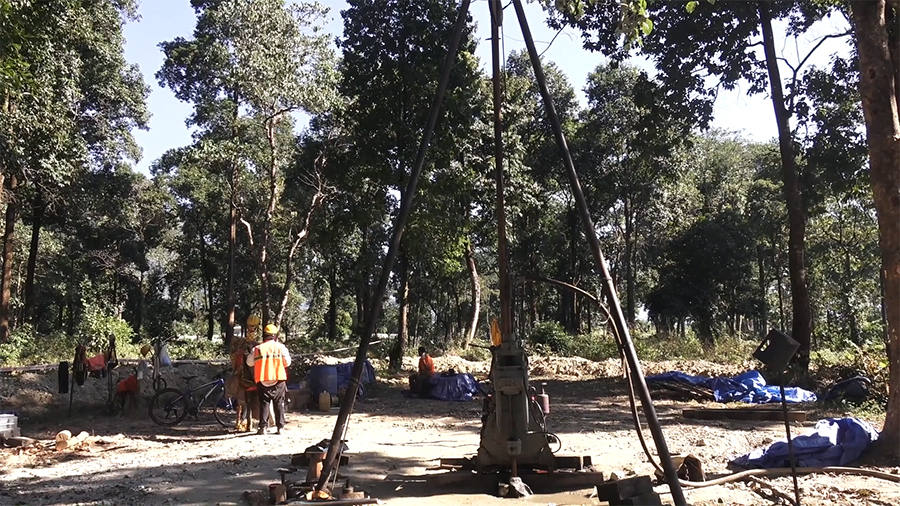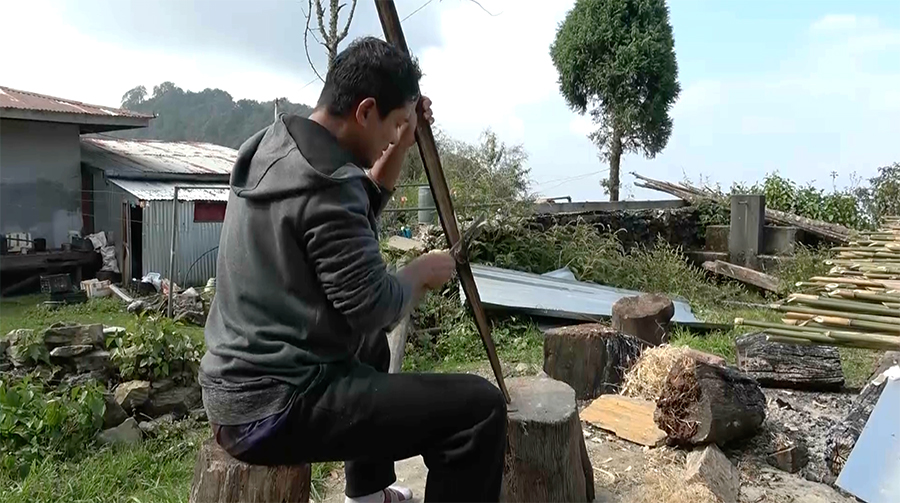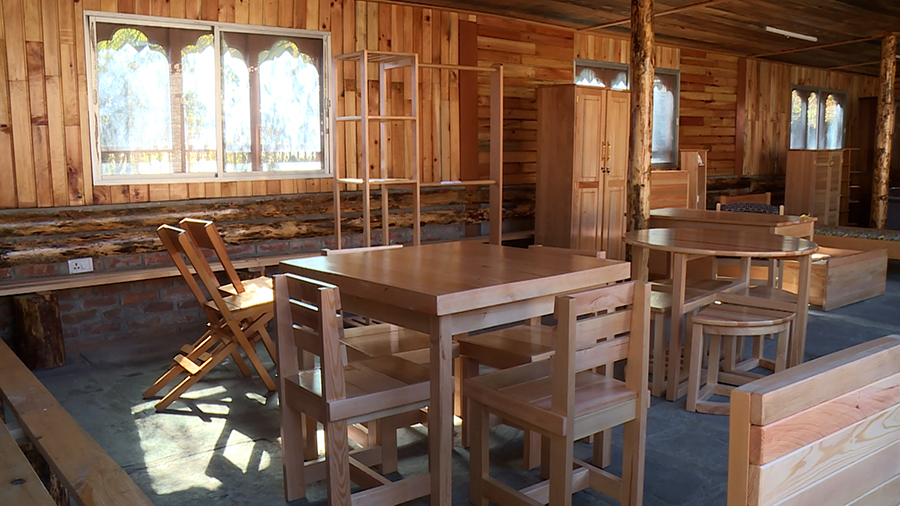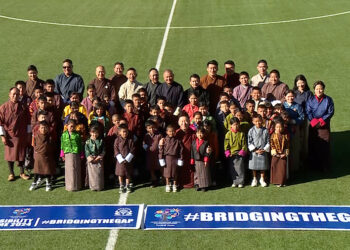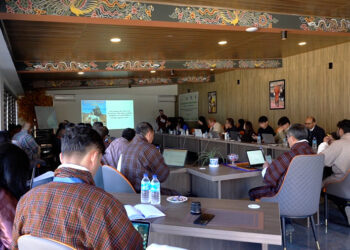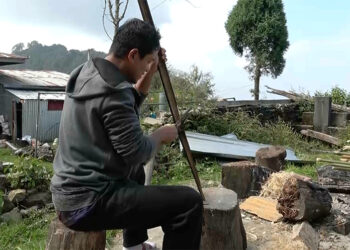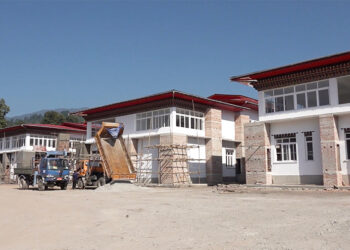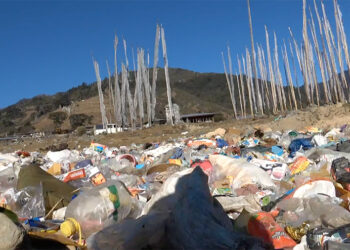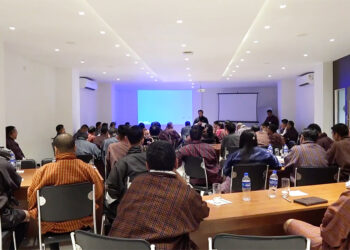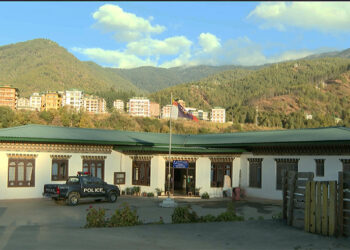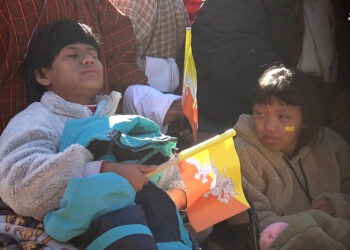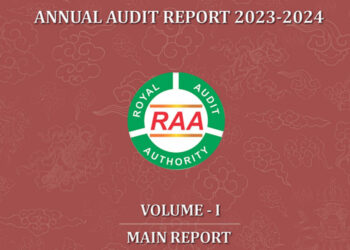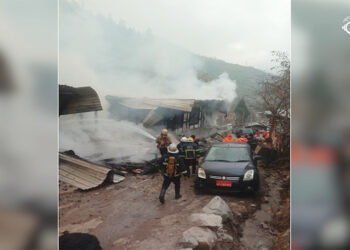Recent Stories
Turning passion into profit: Pema Gatshel man crafts future for traditional archery
In Pema Gatshel’s Shumar Gewog, the sound of bamboo being carved into bows and arrows echoes a story of tradition...
NRDCL shifts to locally sourced timber, making furniture more affordable
Producing furniture using locally sourced wood has not only helped the Wood Craft Centre stop rubberwood import but also made...
Bhutan to build landmark international airport in Gelephu by 2029
During the 117th National Day celebrations at Changlimithang, His Majesty The King announced that Bhutan's priority for the next five...
New landfill to address mounting waste issue in Sakteng
Sakteng in Trashigang, which once boasted of rich, untouched wilderness, is now facing an increasing concern about waste management. The...
WASH FIT Programme sees success, local leaders urge more inclusive facilities
Sanitation and hygiene in healthcare centres have seen significant improvements nationwide in recent years according to local leaders and health...
Public construction quality still lags – RAA Annual Report
The Royal Audit Authority's latest annual report reveals persistent quality issues in public construction, with 139 cases of poor work...
Politics
RCSC defends PME category, proposes targeted support for civil servants
The Royal Civil Service Commission (RCSC) indicated that it is exploring alternative support measures for civil servants classified under the...
Popular
-
Thimphu Police investigate death of man in suspected burglary
-
Six individuals sentenced to upto nine years in sexual abuse cases of minors
-
Elon Musk’s Starlink satellite internet service reaches Bhutan
-
Four + one model to raise funds for Gelephu Mindfulness City
-
Bitdeer’s 500MW Jigmeling facility to be operational mid-to-late 2025
Recent News
Two girls defy disabilities to attend National Day celebration
The National Day celebration on 17th December is one of the much-anticipated events for Bhutanese. Hundreds of people flock to the event venue every year to be part of the celebrations, catch a glimpse of their King and listen to the royal address. This year, the day at the Changlimithang stadium was extra special for two girls from Dagana and...
Wasteful spending due to poor assessments and budget controls- RAA Report
The Royal Audit Authority, over the years, has reported several instances of wasteful expenditures in government and public agencies. According to the latest annual audit report, such circumstances arise when investment proposals are made without properly assessing their requirements, uses, and feasibility. Wasteful expenditures are the inefficient use of public resources, resulting from unnecessary and careless spending that brings no...
Synchronisation of two units with grid at PHPA-II
The Punatsangchu-II Hydroelectric Project has synchronised two units and integrated it with the national grid now. This means the two units have now transitioned from the construction phase to the power generation phase. The opening ceremony was held today coinciding with the 117th National Day. Energy and Natural Resources Minister Gem Tshering graced the opening event today inside the PHPA-II...
First-ever civil parade to celebrate country’s unsung heroes
Bhutan’s 117th National Day celebration will mark a historic first with the introduction of a Civil Parade to honour the nation’s unsung heroes. The parade will recognise 63 roadside workers, firefighters, social workers, telecom and space workers, and honesty teams, acknowledging their silent yet significant contributions to nation-building. One of them is Pancha Man Dunjen, a roadside worker in Thimphu....
Recent News
- Over 45 students join AFC Social responsibility Programme in Thimphu
- Paro hosts conference on climate solutions for Himalayas
- Four + one model to raise funds for Gelephu Mindfulness City
- Geotechnical survey underway for Gelephu International Airport
- Turning passion into profit: Pema Gatshel man crafts future for traditional archery
News Category
- Accidents
- Agriculture
- Announcement
- Business
- Crime/Legal
- Culture
- Development
- Disaster
- Economy
- Education
- Entertainment
- Environment
- Featured
- Festival
- GMC
- Headlines
- Health
- Legal
- Literature
- Livestock
- Media
- Other Stories
- Politics
- Recent stories
- Religion
- Sci/Tech
- Social
- Sports
- Technology
- Tourism
- Uncategorized
- Video
- Video Story
- Wildlife
© 2024 BBSCL. All rights reserved.




